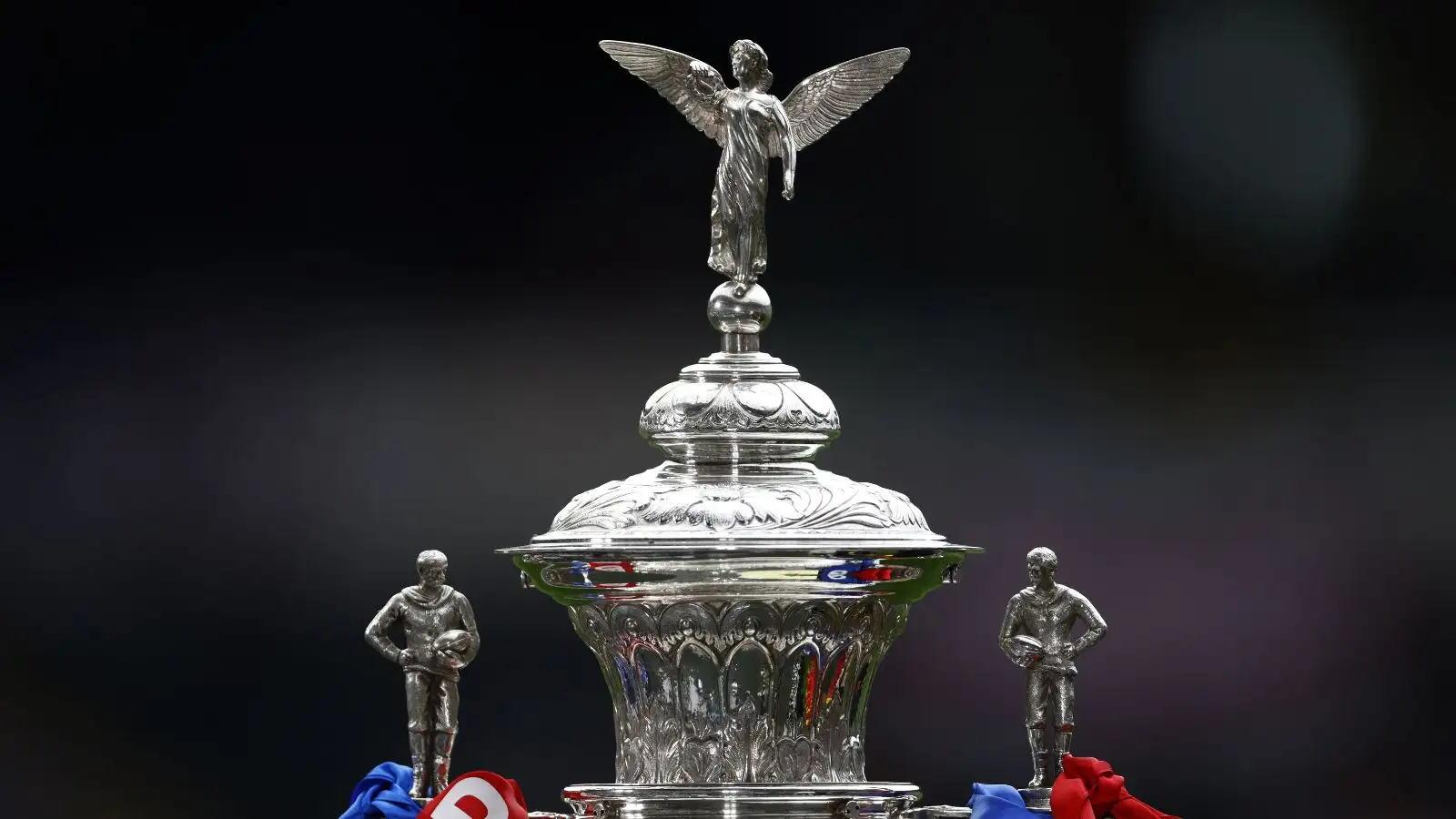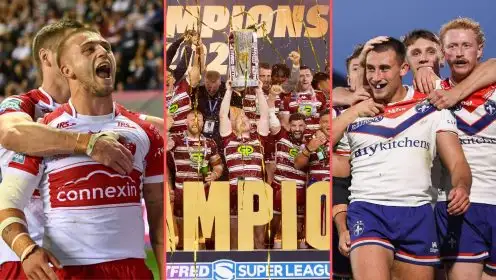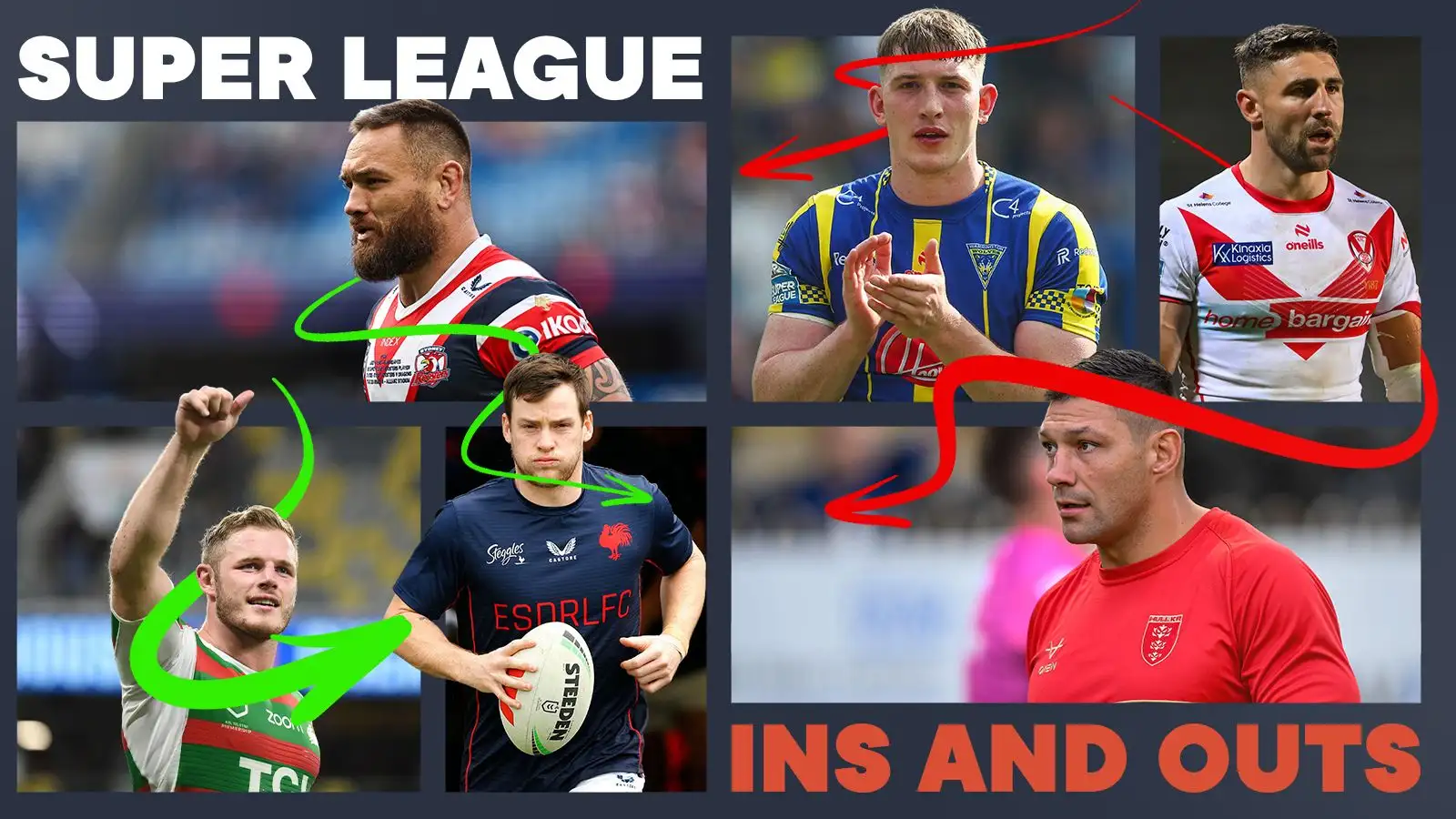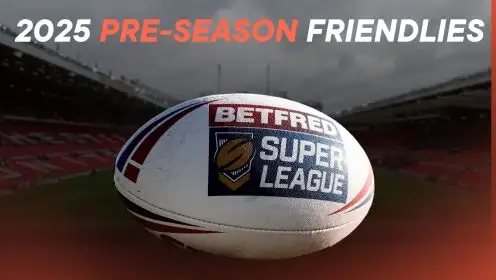The last time Hull KR won the Challenge Cup and helped kickstart the revival of rugby league

The Challenge Cup trophy
It was May 1980 and as viewers tuned into the Saturday afternoon broadcast of Grandstand, they found Eddie Waring stood on an empty Wembley pitch preparing to call his final Challenge Cup final.
And it was one that everyone had been waiting for. He admitted that it had ‘caught the imagination’ of the public.
The game was to be taken from Australia and sent across the nation. And on Humberside, the last person to leave was told to turn out the lights.
As I outline in my new book Hope and Glory, it came at a time when Hull was at the centre of debate about the decline of British Industry.
Just as the coal industry had begun to decline in areas like Wigan, the fishing industry was hammered in Hull by Britain’s entry into the European Economic Community (EEC) in 1973.
This had flooded the market with cheap frozen fish. The much-reviled policy had been the subject of considerable debate in Britain in the 1970s. But it had been put together before Britain entered and gave the country very little control over its fishing quotas.
But against a tough economic climate, rugby thrived on Humberside as Hull and Hull KR became the biggest rivalry in the sport.
In the 60s, the sport had longed to see the giants of Lancashire, Wigan and St Helens, battle it out in the Challenge Cup final at Wembley.
The pair met twice; once in 1961 and again in 1966, when Prime Minister Harold Wilson joined a record crowd inside the stadium to watch the heavyweight rivals Alex Murphy and Billy Boston face off against each other.
There were more people in the ground in April 1966 to watch Wigan v St Helens than there were at the World Cup Final between England and West Germany a few months later.
‘Humberside is gripped by Wembley fever’ for 1980 Challenge Cup final
But by 1980 there was little doubt that the Humberside derby had now replaced it as the top rivalry in the sport.
Those running the game dreamed of an all-Hull derby to generate the same kind of impact.
And in 1980 it finally happened. ‘Humberside is gripped by Wembley fever,’ declared the Rugby Leaguer as supporters across the city queued in the middle of the night to buy the first train tickets when they went on sale.
In the build-up, the Hull Daily Mail found that few people could speak of anything else in the pubs.
One landlord found a way to cash in on the hype by painting two large arrows (one in black and white, one in red and white) pointing to two separate areas of the bar.
A local hair salon offered supporters the option of coloured dye in their team’s colours. ‘It started off with people wanting either squares or stripes in their hair,’ said the owner.
With Hull the subject of much debate in the 1970s as a symbol of British decline, the interest in the 1980 Challenge Cup Final went far beyond the sports pages. The Daily Mirror sent a special investigator to the area to capture the mood on the ground.
They found that the players would face a rather ‘gloomier homecoming’ than usual with ‘One in ten out of work’ and ‘Its unemployment record is among the worst in Britain.’
Most significantly, reporters highlighted how nearly four-fifths of the local fishing industry had been wiped out: ‘Empty docks and factories, shuttered shops”.
The success of Hull and Hull KR had given people a sense of pride and optimism for the future
At the same time, the success of the two rugby sides had given people a sense of pride and optimism for the future.
One trawlerman, who had spent 21 years at sea, said the final was the catalyst to begin a new chapter of his life – ‘I decided there was no way I could miss it’ – so he spent his last pay packet on seven tickets for him, his wife and his children.
Another supporter revealed how he had saved up all his earnings as a part-time barman to pay for a ticket.
The BBC ran a special feature on the packed trains as they arrived at Euston station. ‘Will the last person to leave,’ a banner draped over a bridge on the A63 asked, ‘please turn out the lights?’
In front of the Queen Mother, who was the guest of honour, Hull KR lifted the trophy. A try and three goals from wing Steve Hubbard plus a drop goal from captain Roger Millward sealed victory. Millward went down in Challenge Cup mythology after he broke his jaw after fifteen minutes and played on.
But the organisers were the big winners. ‘The attendance could easily have topped 100,000 had we been allowed,’ admitted an RFL spokesperson.
And with that the 1980s began….
To read the full story of Rugby League in Thatcher’s Britain you can order Hope and Glory now.
READ NEXT: British State of Origin failed – but should IMG revive it?



